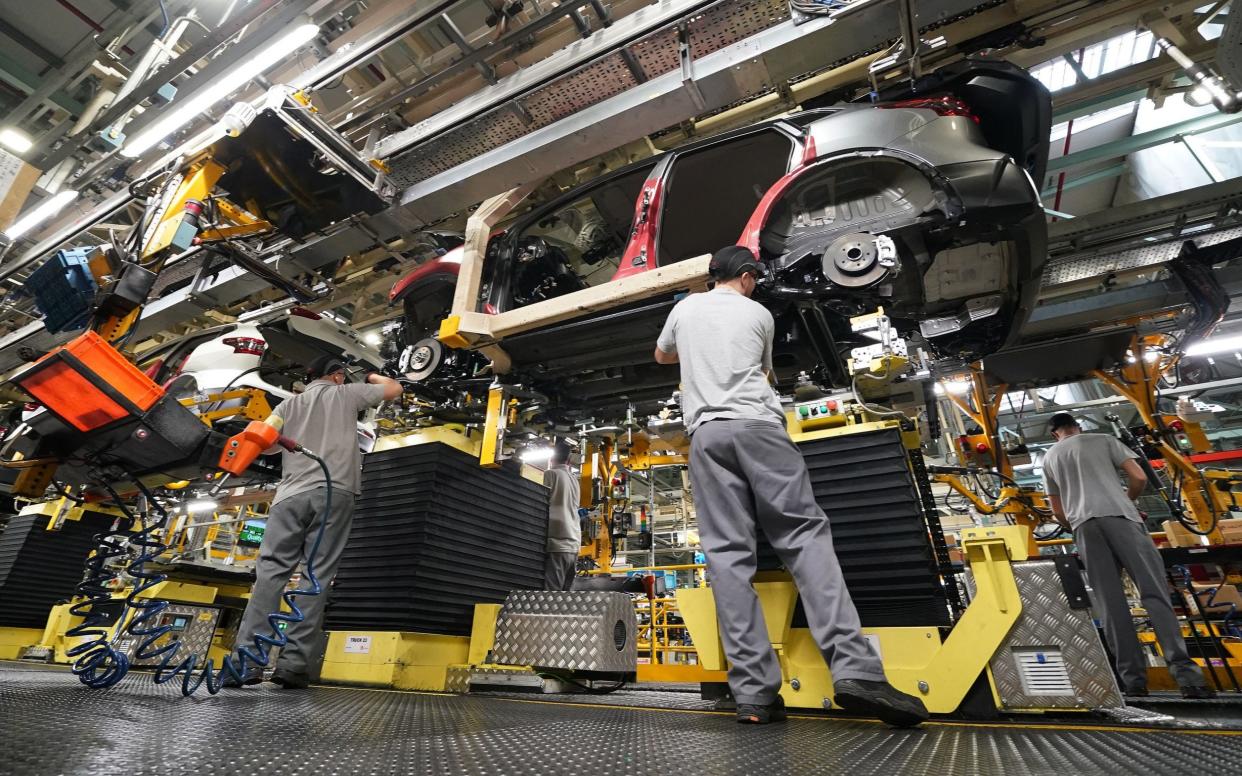Factories lead recovery as orders return to growth

Factories are leading the economic recovery in the UK after output rose last month at its fastest pace since late 2017 - while surging consumer confidence raises hopes of a wider "V-shaped" bounceback.
The pandemic and lockdown forced manufacturers to slash production or close their doors completely, bringing the industry close to a standstill between March and May.
But output stabilised in June and returned to growth in July according to IHS Markit’s purchasing managers’ index, a closely watched survey of business leaders.
IHS Markit's overall index of manufacturing activity rose from 50.1 in June to 53.3 in July. Any score of above 50 indicates growth, so this shows the industry is expanding, though from a low base.
The output index surged to its highest level since November 2017, jumping from 50.6 in June to 59.3 last month.
James Brougham, economist at industry group Make UK, said: “UK manufacturers have been eager to embark on the road to recovery, and those efforts would appear to be bearing fruit with improved orders allowing industry a greater degree of confidence it needs to drive output up.
“Nevertheless, industry has been through a profound shock, the impact of which will continue to be felt for some time to come, especially in those sectors which have been most heavily affected.
“While the data from one month gives some cause for optimism we are going to need consecutive months of positive performance to recoup the deep losses incurred by the pandemic, a prospect that is threatened by the continued loss in jobs which we are likely to see coming through the pipeline.”
Domestic demand drove the improvement, with orders returning to growth for the first time since February.
Consumer goods and intermediate goods were the biggest contributors, while demand for investment goods also improved.
YouGov’s consumer confidence indicator also surged back into positive territory for the first time since before the crisis struck.
Confidence in house prices, business activity, job security, and personal finances all improved over the past month, although households are a little more worried about their jobs and finances over the next year.
The end of the national lockdown combined with rising confidence meant factories were able to take back some of their furloughed workers, the PMI showed.
But the employment index in the PMI remains deep in negative territory, indicating not all of the workers will keep their jobs.
Rob Dobson, of IHS Markit, said: "Despite the solid start to the recovery, the road left to travel remains long and precarious. An extended period of growth is still needed to fully recoup the ground lost in recent months,” said .
“This is also the case for the labour market, where job losses are continuing despite businesses reopening. There is a significant risk of further redundancies and of furloughed workers not returning unless demand and confidence stage more substantial and long-lasting rebounds in the months ahead.”
Meanwhile manufacturers across Spain, France, Germany and Italy all recorded growth in July, IHS Markit said.
The overall eurozone PMI of 51.8 indicates the sector is expanding again, if not quite at the pace achieved in the UK.

